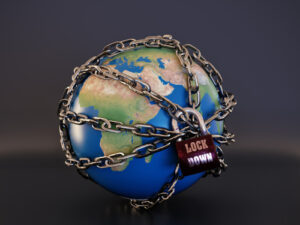The Great Climate Debate: Are We Really Fleeing to Antarctica?

As we wade through the murky waters of climate discussions, it’s essential to separate fact from frenzy. For almost two decades, we have been inundated with sensational forecasts predicting an apocalyptic future due to global warming. The narrative typically goes something like this: rising sea levels will force humanity to flee to Antarctica. This alarming forecast, while dramatic, paints a picture that feels increasingly absurd, doesn’t it?
The media often thrives on this kind of sensationalism, which has forced governments to react—sometimes excessively—by implementing higher taxes and funding dubious climate programs. In the face of such narratives that have persisted since at least 2004, one must ask, what have we really witnessed? Quite paradoxically, some regions are experiencing their coldest winters in decades. How do these facts align with the overarching narrative of climate catastrophe?
Climate Catastrophism and Its Impact
Take, for instance, the headlines from 2004 and 2015 asserting that a mass retreat to Antarctica would be necessary. Fast forward to the present day, and while the mainstream media continues to churn out theories about climate-induced displacement, many of us are shoveling snow in unusually cold winters. Is this a sign of weather patterns struggling against the aggressive narratives calling for climate panic?
Even more bewildering are the measures taken globally under the guise of climate action. Let’s consider recent lockdowns driven by pandemic fears. Some argue this was part of a broader agenda linked to climate change advocacy. With communities shifted to remote work, we witness a deeper crisis emerging in commercial real estate—another problem tied back to the very concerns about environmental policies that had little correlation with actual environmental hazards.

Economic Implications and Skyrocketing Tensions
As we delve deeper into this conversation, we can’t ignore the political implications. Recently, initiatives in Germany illustrate the radical turn some ‘green’ factions have taken. Seeking to support military action against countries like Russia to curtail fossil fuel production may sound counterintuitive—especially when we’ve supposedly been striving for peace and sustainability.
The reality is, wars have often been justified under noble pretenses, and history shows that aggressive measures are taken in the name of "greater good." The connection between climate initiatives and international conflict illustrates the complex landscape of today’s political environment. How do we reconcile the pursuit of climate justice with the spiraling tensions that can arise from it?
The Path Forward: Rational Discourse and Action
It’s evident that the climate dialogue must evolve. Instead of succumbing to sensational forecasts and panic-driven policies, it’s time for grounded discussions rooted in empirical data and rational analysis. At Extreme Investor Network, we aim to provide a balanced perspective that encourages transparency and bipartisanship when addressing pressing issues such as climate change.
By fostering constructive dialogues, we can collectively explore innovative solutions that respect the natural world while maintaining economic viability. The narrative isn’t merely about avoiding a forced migration to chilly Antarctica or blaming everyday actions for severe weather but rather about creating a sustainable future one informed by reason and genuine understanding.
Conclusion
As we explore the ongoing debates surrounding climate change, it’s crucial to remain vigilant against fear-based tactics. Instead of packing our bags for Antarctica, let’s focus on fostering sustained economic growth while prioritizing environmental stewardship. The journey may be complex, but it promises a deeper understanding of our planet and an informed approach to securing our future.
Stay informed and join us at Extreme Investor Network as we delve deeper into economic strategies and realities shaped by our ever-evolving environment. Only through informed discussion can we hope to navigate these challenges ahead.

